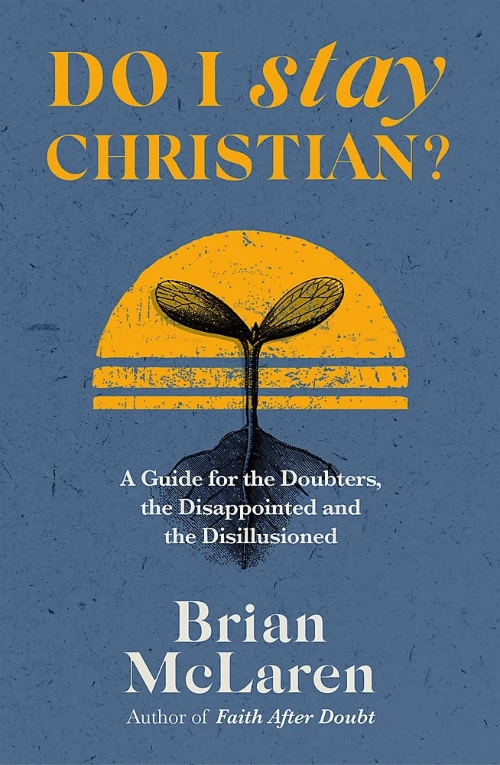Do I stay Christian? By Brian McLaren
McClaren focuses on the how of living well after presenting both the case for and against the Christian faith in this thought-provoking book
 Do I stay Christian? A Guide for the Doubters, the Disappointed and the Disillusioned
Do I stay Christian? A Guide for the Doubters, the Disappointed and the Disillusioned
By Brian McLaren
Hodder & Stoughton
ISBN: 9781529384611
Reviewed by: Robert Draycott
When young I heard a very distinguished speaker. I was unimpressed, he was 'not one of us'; worse still he offered 'the social gospel'. A few months earlier I had been impressed to hear 'the gospel' preached by another Brazilian -he was 'one of us'.
Brian McLaren, would he be seen as 'one of us'? Surely not if one thinks that it is faithless for him to ask that question 'Do I stay Christian?'. In answer he presents both the case for and the case against the Christian faith.
McLaren begins with No. The first ten chapters go from Christian Anti-Semitism through to Christianity as a 'Sinking Shrinking Ship of Wrinkling People'. One problem is that not every reader will accept his affirmations: for example, do we agree that money is Christianity's real master? Chapter 10 is entitled - ‘Toxic Theology, Lack of Transformation, and Constricted Intellectualism’.
This chapter would be my pick of the first section, precisely because it is one disputed area. Consider for example this extract:
'As a boy in the 1960s, I never would have believed that the same literalist, six-day, young-earth, anti-science creationism I was being taught then would still be in circulation (today)'.
He grew up in the States, but as one who has taught Religion and Science at A level, I am astounded that some amongst us welcome and promote such notions.
If we move on to the second section, we have 10 chapters affirming the Yes answer. Chapter 16 stood out for me, entitled, 'Because Innocence Is an Addiction and Solidarity is the Cure'. This chapter proved both a window and a mirror. A window helping me to have more understanding of where others are coming from, and a mirror of my own lack of tolerance (demonstrated, as you will have noted, above).
McLaren writes about our way of thinking/saying ‘but they aren't real Christians'. He refers to an interview he read with a Jewish activist and author Talia Lavin who said, 'I don't get to disavow Jeffrey Epstein as not really a Jew'. He goes on to observe that, 'distancing myself from 'bad Christians' absolves me of the responsibility to confront them as my brothers and sisters. It lets me waltz off the stage feeling superior and innocent.'
This is a mere snippet but I trust it sheds some light on our present challenge with regard to amending the current rules on Ministerial recognition. I first heard a dark warning about 'trouble ahead' in April and I have since read the relevant summaries of the different viewpoints involved. Our temptation is to see those who have a different understanding as 'bad Christians' - who are not part of our tribe. McLaren’s reasoning in this chapter is I believe worth following, for example towards the end he refers to repentance: 'soberly rethinking the past.....feeling the full measure of the pain of the victims, seeking to understand the conditions that prompted the victimizers to do what they did.......righting the wrongs.......'
He speaks of, 'this soul work, this holy work, this often agonising labour of personal and social transformation and rebirth - that we redeem the past and actually become better people: not innocent, not perfect, but good.'
Part three is entitled ‘How’ – ‘offering ways to hold both the no of part one and the yes of part two together so we can focus on the how of living well.’
Some may well think that McLaren is 'not one of us'. Maybe not, nor was Dom Heldar Camara, to whom I referred above, but I came to appreciate and value him much more than the other speaker with whom I had initially identified - until I came to understand more of the social dimension of sin. A very thought-provoking book.
Robert Draycott is a retired Baptist minister (various pastorates here and in Brazil), and a former chaplain of Eltham College
Baptist Times, 04/11/2022